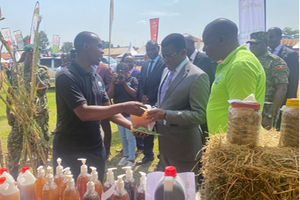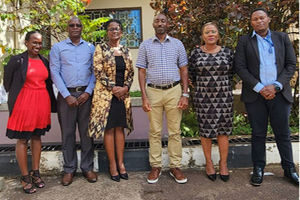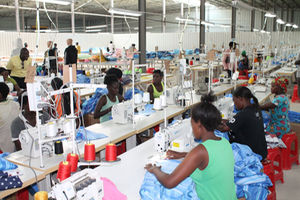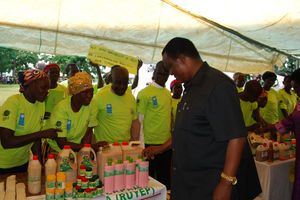
Peter Eceru
On July 8, the Daily Monitor ran a story titled “Women to benefit from AU Programme”. The article made reference to the launch of the Empower Her Uganda Chapter by the African Union Special envoy on Women Peace and Security, Mme Bineta Diop. The Empower women in Agriculture initiative is designed to celebrate and empower women who are involved in agriculture.
According to the Uganda Bureau of Statistics, in agricultural households in Uganda, 88 percent of female adults are primarily engaged in agriculture compared to 78 percent of men. It is also critical to note that about 80 percent of the world’s food is produced by small-scale farmers - a majority of whom are women.
Unfortunately, while more women are engaged in Agriculture, the productivity of women farmers is between 20 to 30 percent less than that of their male counterparts. This is largely attributable to two compounding layers of exclusion, one, as smallholder farmers, and secondly, the fact that they are women. Women working in agriculture face more challenges than their male counterparts, in part due to discriminatory gender norms that limit their access to productive resources such as land, labour, equipment and economic resources, their greater involvement in unpaid care and domestic work and their exclusion from leadership and decision-making positions at all levels. Taking deliberate actions to empower women and dealing with the dual layer of exclusion would reduce global hunger by 17 percent, on account of increased productivity by women.
As part of the agenda to empower women, the African Union (AU) unveiled a statue dubbed ‘’Retiring the Hoe to the Museum’’, to symbolically mark the continental agenda of promoting agriculture mechanization among women to improve food production. This still remains a dream for many Africans with most women toiling away with the hand hoe.
When effectively harnessed, agriculture is more likely than other sectors to provide diverse opportunities for empowering women. However, women farmers are held back by barriers that prevent them from feeding their families and reinvesting in their livelihoods. They face restrictions related to their gender while also experiencing the financial struggles shared by all small-scale farmers.
While the government has established affirmative programmes in education and political arenas, women do not receive the same support as men farmers do. They have less access to land, loans and machinery. Women are heavily involved in domestic activities, which remain hidden economically.
In this era, it is also important to take into consideration the effects of climate change on women engaged in agriculture because evidence now suggests that women are disproportionately affected by climate change and face greater exposure to climate risks due to the same barriers that reduce their productivity.
The cost of inaction in this area is extremely high not just for women, but the entire country. Empowering women and girls is not just necessary for their well-being, but also a means to broader agricultural development and food and nutrition security. It is an economically sound decision for a largely agricultural country like Uganda. Empowering and mainstreaming rural women work force in Agriculture can bring a paradigm shift towards economic growth. It will enhance food and nutrition security and safety and alleviate poverty and hunger.
Governments must take deliberate actions that break down the barriers that are holding back women farmers and preventing them from accessing critical farming inputs and resources. They must ensure women have secure land rights, and provide women with vital funding and support for farming and adapting to climate change. Such support would protect their rights and boost their productivity. It would unleash the potential of millions of women farmers to effectively reduce poverty and hunger and respond to the effects of climate change. The beginning point ought to be to ensure that budget allocation to agriculture is increased because this is where more women are employed and secondly, deal with the burden of unpaid care work.
Closing the gender gap in access and use of productive resources” would have a measurable impact on agricultural output in the developing world.” The benefits also improve society as a whole; studies show that women are more likely than men to spend on their family’s nutritional needs, healthcare, and school fees for children. Increasing opportunities for women can have a powerful impact on productivity and agriculture-led growth fosters policy changes that increase women’s land ownership, and strengthens their access to financial services
Mr Peter Eceru works with Action Against Hunger.








